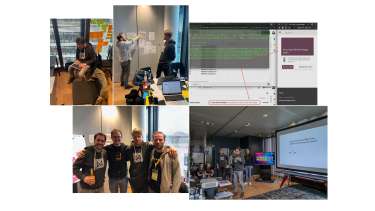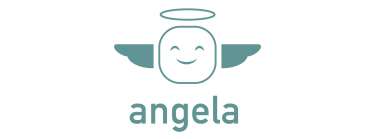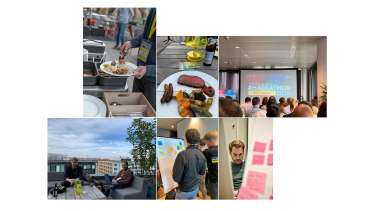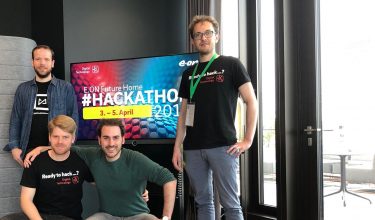
#hackathon #product discovery #prototyping
23. Apr 2019 |
- min Lesezeit
After an amazing barbecue on a beautiful rooftop terrace in the middle of munich, we got introduced to the challenge: Inventing the smart home of tomorrow! No further requests or restrictions - just be creative and invent something smart. What we got in addition was a very impressive data set generated by multiple sensors placed in two rooms (bath and kitchen) of a real household over a period of two months. All the teams were supposed to analyze the data, come up with ideas based on their findings, and to prototype a data-driven product which improves the smart home of the future.

We dedicated the rest of the evening to our first ideation session. In fact, deciding on a product to develop during the hackathon was far from being easy: We had a lot of ideas and all of them sounded very promising to us. In order to get some sleep before the next day, we postponed the decision and left the venue just before midnight. On the next day we finally agreed on a product to develop in the remaining ~30 hours of the hackathon. The winner was “Angela” - our smart monitoring and alerting system for forgetful seniors living alone and their anxious relatives.
Angela serves two purposes: While it helps the relatives of seniors to provide a safe environment for their loved ones, it also enables seniors to live independently for a longer time without sacrificing their privacy. It does so by monitoring potential harmful incidents and providing smart alerts on devices already present at the home of the senior (e.g. TV, radio). In addition, Angela can also take automatic actions, e.g. turning off the heating plate or closing the fridge. The relatives of the senior get real time statuses with soft alerts (e.g. “Your dad left the fridge open, I will close it”) or hard alerts in case of very critical situations (e.g. “Your dad fell down in the kitchen, I’m making an emergency call ”). In addition, Angela leverages a network of E.ON subscribers living close by to help the seniors.

But how does Angela detect harmful incidents? In contrast to existing monitoring systems (bracelets or alarms to press) the seniors don’t have to wear Angela on their body all the time. Instead, the system collects information through a board of sensors placed in each room recording sound, movements, air composition and other environmental conditions.
After having clarified the basic features of Angela we started prototyping. As the data we got from E.ON was collected with a board like the one Angela was supposed to deploy, we could directly use it to develop our alerting system. Digging deeper into the data, we were able to identify a lot of interesting patterns which sometimes could be linked to specific actions humans carry out in their households (e.g. showering was relatively easy to identify based on a combination of temperature, humidity and CO2 amount). To decide if one or more persons were present in the room was a bit more advanced. For our prototype, we focused on a much simpler scenario: Did the senior leave the fridge open accidentally?

By identifying the fridge’s regular patterns of electricity consumption (e.g. normal cooling periods) we developed a basic algorithm that was able to tell whether the fridge was left open accidentally by recognizing irregular patterns of electricity consumption. We then designed our prototype to continuously receive electricity consumption data of the fridge and to generate a warning in case of anomalies. The warning is then automatically pushed into the Angela mobile app and send via mail to the senior’s relatives.
We managed to finish our prototype and business model just in time before the pitch sessions in the afternoon of the last day. Each team got 3 minutes to present and 2 minutes for Q&A. The jury consisted of energy and business experts from e.on and external companies. Our presentation went very well and in the World Café subsequent to the pitch sessions we got a lot of positive feedback by jury members and other hackathon participants.
Unfortunately, we couldn’t make it among the top 3. Still, we are convinced by our product and the hackathon was a great experience for all of us.
